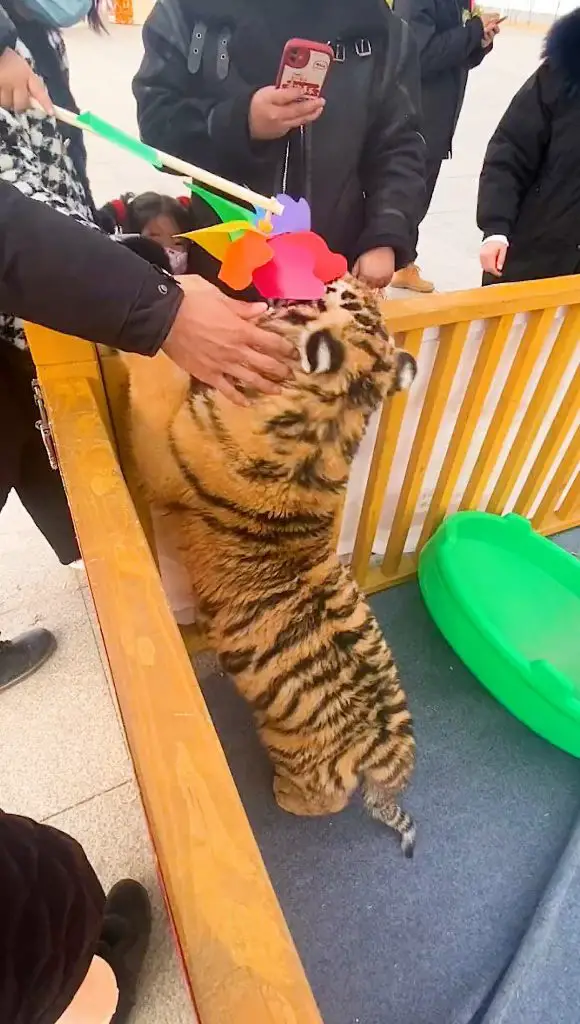A Chinese zoo has defended itself over footage of visitors flocking to scratch the head of a tiger cub believing it would bring them good luck.
The video that went viral was filmed at Suzhou, a prefecture-level city in northern Anhui province in China.
After it was seen by local media, they asked the zoo for comment and it defended itself by saying that the visitors had been acting illegally, and they should not have been reaching over the wooden barrier to stroke the little cub.

They said that the wooden fence had been put in place according to expert specifications, which made it clear that the height selected was too high for the tiger cub to climb over. But they had not taken into account that visitors would lean over in order to scratch its head.
People shared videos and pictures noting how exciting it was to scratch a real-life tiger on the head.
The video footage also shows people trying to interest the clearly nervous cub in some toys – with a plastic windmill being poked in its face at one point.

The zoo added that although not allowed, it was not dangerous for visitors as the tiger cub was born in captivity to domesticated parents and was not as dangerous as a wild tiger cub would be.
PETA Director Elisa Allen told AsiaWire: “The cub-petting industry brings only misfortune to baby tigers, who are snatched from their loving mothers when just days old and treated like props.
“Within months, they become too dangerous to be used for petting and invariably end up trafficked around the world to circuses or decrepit roadside zoos, where they will spend the rest of their miserable lives pacing endlessly in a cage that deprives them of any semblance of a life.

“China urgently needs to usher in protection laws which prohibit the cruel exploitation of wild animals. Meanwhile, everyone can help by refusing to visit facilities that hold animals captive.”



